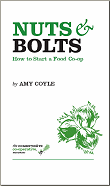Buy into Cameron’s co-op
"Conservative Co-ops?” The woman goggled in amazement. “What, you mean lots of suits in blue rosettes selling beads? I thought the Tories were the party of capitalism!”
I had expected this reaction to David Cameron’s announcement on Thursday of the grandly titled Conservative Co-operative Movement, of which I am the chairman. In fact my in-box has been stuffed with e-mails from people of all political persuasions expressing interest in the project.
I have had to explain that a movement is not what we are but what we aspire to become. Not only that, but co-ops are in many respects – hold on to your hat – a rather conservative, yes capitalist, idea. And they pinpoint what has gone wrong with Labour.
A co-op is a form of shared ownership where, very crudely, control is distributed not one share-one vote, as in a PLC, but one member-one vote. This gives it an intrinsically democratic character. It makes it hard to raise external capital, and it means a co-op always needs strong leadership, on pain of becoming a talking shop. But it also makes co-ops stimulating and often entrepreneurial places to work. Similar things are true of other shared ownership organisations, including mutual societies, employee-owned companies and credit unions.
The first successful co-op in the world was established by the Rochdale Pioneers, in 1844. They were 28 poor weavers and tradesmen looking for a better future as the industrial revolution mechanised the cloth trade.
They relied on slowly accumulated subscriptions of £1 each from the members, and initially made a modest £13 a week in sales. By 1850, however, the co-op had 600 members, £2,299 in capital, and sales of £300 a week. In 1861, it diversified into housing for its members. By the end of the 19th century, it had established the Co-operative Building Society, a major provider of mortgages.
But look at the pioneers’ experience again. Their success was the result of self-help, entrepreneurship and community energy, not state patronage and official intervention. They were able to adapt the co-operative form and the broader idea of shared ownership to a variety of social needs: a local food shop, local housing and local mortgages. They were motivated as much by high ideals as by economic necessity: in their first year of operation, they published the Rochdale Principles, to which all co-ops broadly adhere today.
We need something similar today if we are to combat the fragmentation of British society. In a recent pamphlet, From Here to Fraternity, I argued that the Conservatives should embrace a radical programme of change to address the UK’s current “social recession”. This includes rebalancing power away from the state and further towards the individual through constitutional reform and deregulation.
It includes devolving more power from Whitehall to local government and a relocalisation of public services. And it includes breathing new life into old institutional forms . . . such as co-ops. Co-ops are thus not just the latest Tory idea du jour. They are a clear and important extension of our overall project.
Food makes the point perfectly. At present the UK food industry is dominated by the view that the only priority is low prices at the till. As a result we have cheap food of amazing variety and abundance. All well and good – except that we also have failing high streets, high food miles, low prices to the farmer, increased car and petrol usage to out-of-town shops, lower food security, and a widespread ignorance of what food is and where it comes from.
Local food co-ops, by contrast, bypass the supermarkets. They support local growers and provide good affordable food. They protect the environment. And they build local communities, not an impersonal retail monoculture. If you don’t believe it, look at the Park Slope co-op in New York, which has 12,000 members, a 75% volunteer workforce and a 20%-plus discount on prices to members.
Much is being done already to create new food co-ops in the UK. Our initial contribution will be to publish a brilliant new how-to book by Amy Coyle early next year called Nuts and Bolts – Or, How to Start a Food Co-Op. But we will also be looking at how shared ownership can be extended into the public services, in key areas such as education, social services and the welfare system which rely so much on personal engagement and the human touch.
And this in turn shows again how badly unstuck the government has become. Labour has always been a coalition. But increasingly it has been one in which a top-down Fabian statist tendency has swamped bottom-up traditions of working-class dissent; in the political success of Harriet Harman, if you like, over that of Jon Cruddas.
As the limitations of the state become evident, the result is that Labour lacks an intellectual basis from which to engage with issues of social breakdown and renewal. By killing its internal conversation and suppressing dissent, it has killed the very things that would enable it to generate that basis once again.
On the contrary: Labour’s internal debate has long been not about how to empower society and enable it to grow, but how to retain power for itself. As with supermarkets, the result has been a political monoculture: a self-serving class in government who have no experience of the world outside. Working in a co-op would cure this.

